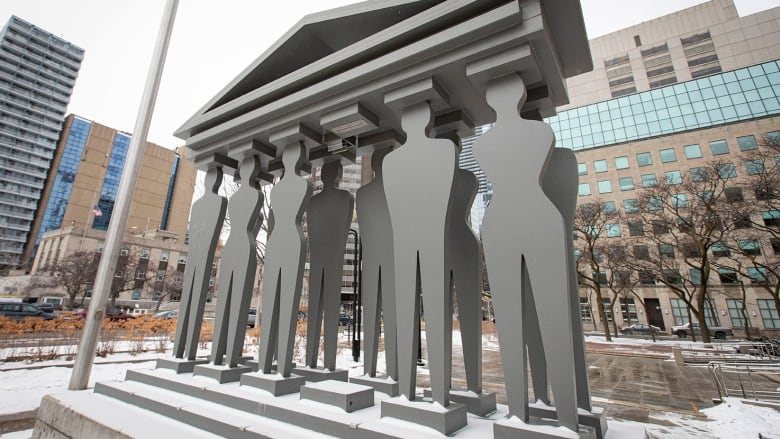People working in the justice system say the recent federal budget made some moves that could improve access to justice in Canada — but more needs to be done to address swelling case backlogs in courts across the country.

A few years after her client suffered a devastating brain injury in a motor vehicle collision, Toronto-based personal injury lawyer Jasmine Daya thought they were getting close to a resolution.
But the pretrial hearing scheduled for last July was postponed because of the pandemic — then pushed back again when Ontario issued its latest stay-at-home order.
“Now my client, who has a brain injury that requires 24-hour care, that has no access to funds, that has no ability to pay for someone to take care of him — I can’t help him,” said Daya, managing principal of Jasmine Daya & Co., a personal injury law firm.
“The situation is mind-boggling to me right now. I am having sleepless nights. I am stressed out because I can’t serve my clients.”

She’s not the only one. The Criminal Lawyers’ Association estimates 100,000 cases are on hold in Ontario alone.
The problem is being compounded by a directive issued by Ontario Superior Court Chief Justice Geoffrey Morawetz to “defer as many matters as possible” during the pandemic’s third wave — including virtual hearings. Similar delays are happening across the country.
The federal government says it is trying to improve access to justice by pledging millions of dollars to improve the way the courts work, but some lawyers say more needs to be done to control a growing backlog of cases.
New judges to help ease strain on system
The federal budget sets aside $49.3 million over five years, and $10.4 million per year after that, to create 13 new superior court judicial positions across the country, including an associate chief justice position for the Supreme Court of Newfoundland and Labrador.
“There is an ongoing challenge with respect to hearing cases in a timely matter,” Justice Minister David Lametti told CBC News.
“New judges will help. They’re not the only solution to that, but it certainly will help.”
Brad Regehr, president of the Canadian Bar Association, said the extra judges are badly needed.
“We have an access to justice crisis here in Canada,” Regehr said. “There’s not enough judges, so we’re happy there’s going to be the creation of 13 more judicial positions. But we’re obviously seeking more than that.”
Regehr said the association is pleased with funding set aside in the budget for asylum-seekers, specialized drug courts, diversion for youth justice services and support for reconciliation with Indigenous peoples.
The budget also earmarks $5.4 million to ensure the safety of federal courts during the pandemic.
“Overall, there’s a lot of important initiatives that are being supported, but there’s still more work to be done,” Regehr said.
“We probably need greater commitments if we’re going to be pursuing access to justice and trying to improve that.”
Law commission could address access to justice issues
Buried deep in the budget book’s 700-plus pages is a $18 million promise to re-establish the Law Commission of Canada, an independent body meant to provide guidance to the federal government on key legal issues.
The commission has been shut down by Ottawa twice — most recently in 2006, under Stephen Harper’s government.
The Canadian Bar Association has called for the restoration of the commission. Regehr said it could help address the access to justice problem by looking into how well the justice system is embracing new technology and lessons learned from the pandemic.
“This would be excellent for the Law Commission of Canada,” Regehr said.
Lametti said he was inspired by his late mentor — Roderick Macdonald, the founding president of the Law Commission of Canada — to push for its revival.
He said he can see the commission addressing issues like systemic racism and discrimination in the justice system, environmental justice, Indigenous reconciliation and access to justice.
“It’s done groundbreaking work and it needs to do groundbreaking work,” Lametti said.
Budget won’t improve backlog soon
Daya said the federal plan offers nothing to immediately relieve the pressure lawyers are experiencing because of the case backlogs.
“I see a problem that we already had ballooning into something even bigger,” Daya said. “To stop the virtual proceedings is a big mistake because, again, it creates additional backlog and it’s denying access to justice.”
Lametti said he’s willing to work on solutions but pointed out that the provinces are responsible for running their own justice systems.
He said court administrators are doing an admirable job of navigating through the pandemic.
“Yes, some cases have been moved back, cases that could. But they will be heard as soon as they can,” Lametti said.
“We’re going to continue to ensure through technology and other means that we continue to have a well-functioning court system.”
